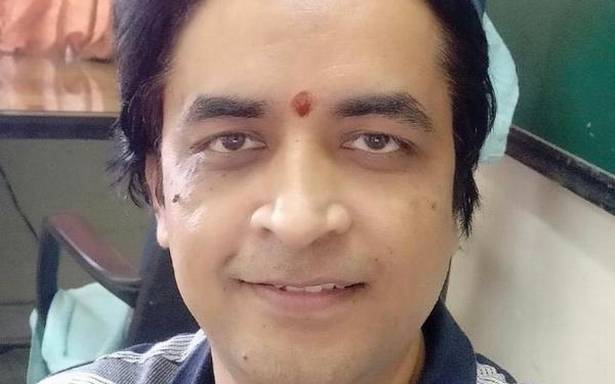Such findings have implications not only for understanding the hearing impaired visual system better but also for their education and rehabilitation
A sample of congenitally hearing-impaired individuals born to hearing-impaired parents show greater attentional orienting to visual cues than individuals with normal hearing, according to a study conducted by the school of medical sciences of University of Hyderabad on Monday.
The study conducted on “Attention capture by brief abrupt – onset cues in hearing-impaired individuals” by Prof. Ramesh Mishra’s lab at Centre for Neural and Cognitive Sciences has been published by the prestigious journal Neuropsychologia which is an interdisciplinary journal for cognitive neurosciences, said an official release.
In the paper, the authors using the ‘Posner cueing paradigm’, a well-known paradigm in attention research, show that suddenly appearing information on the screen capture the attention of hearing-impaired individuals to a greater extent. This suggests that hearing impairment makes such individuals more susceptible to sudden information in their environment.
Whether this is an advantage or not depends on the type of information and the environment in which the individuals find themselves. Deafness-induced neuro-plasticity in the brain along with the use of sign language is considered to be the underlying reasons behind such visual processing differences observed in the hearing impaired . Such findings have implications not only for understanding the hearing impaired visual system better but also for their education and rehabilitation.
The study was conducted by former PhD student Seema Prasad under Prof. Mishra’s supervision. Seema is currently a Humboldt postdoctoral fellow at TU Dresden, Germany. The paper is also co-authored by former intern Vidya Somashekarappa, currently a PhD student at the University of Gothenburg, Sweden.
The study was also made possible with the support of Gouri Shanker Patil, specialising in speech pathology at the National Institute of Hearing-Handicapped and has been a long time collaborator of Prof. Mishra’s lab. Other papers belonging to this line of enquiry can be found on the lab website. For more details about the study click on the link: https://www.sciencedirect.com/science/article/abs/pii/S0028393222000161?dgcid=author
Source: Read Full Article

